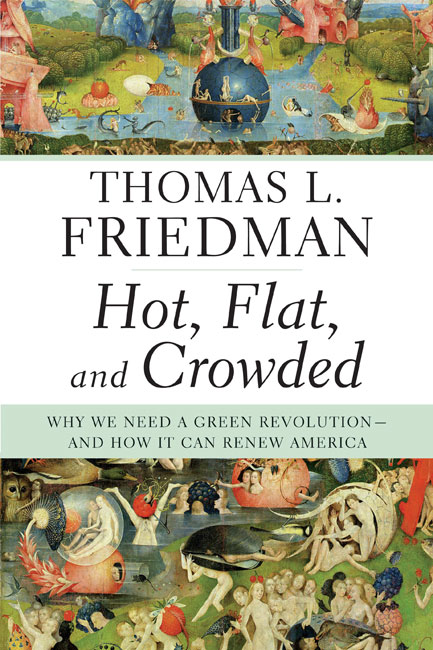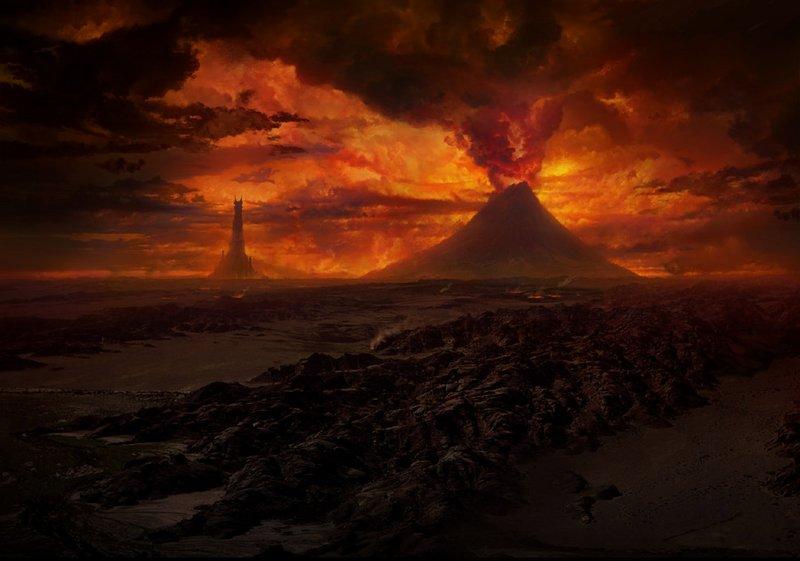
Writing to wish everyone a safe, prosperous and blessed 2010. 2009 have been a blast, so let's have a great 2010.
Happy New Year
Canadian by birth, Southern (Ontario) by the Grace of God.- yeah it's a Lynyrd Skynyrd reference

would rather it not happen if people accept that as being the right track because it's a disaster track," said Hansen, who heads the Nasa Goddard Institute for Space Studies in New York.
"The whole approach is so fundamentally wrong that it is better to reassess the situation. If it is going to be the Kyoto-type thing then [people] will spend years trying to determine exactly what that means." He was speaking as progress towards a deal in Copenhagen received a boost today, with India revealing a target to curb its carbon emissions. All four of the major emitters – the US, China, EU and India – have now tabled offers on emissions, although the equally vexed issue of funding for developing nations to deal with global warming remains deadlocked.



The longest stretch of pre-confederate buildings in the province of Ontario (if not anywhere west of Quebec)
While there are many buildings that have played a large part in the history of both Brantford and the country, we acknowledge that in order for the downtown to be revitalized some will likely need to be sacrificed. However, many of these are simply good buildings under tacky veneer, and some have fascinating and important histories.
The Heritage Committee recognizes that saving stand-alone buildings may not always be practical for a number of reasons. Considering that, the Heritage Committee advises that the City keep at least two blocks of buildings on the south side of Colborne Street, and elsewhere save good buildings where possible. This solution would provide plenty of room for complimentary contemporary uses, while still maintaining the uniquely historic character of the downtown core. It would also provide loft type
housing, a varied streetscape and small quirky spaces for individual entrepreneurs.


If the resource curse describes the economic pitfalls that can come from resource riches, then what New York Times columnist Thomas Friedman calls the “first law of petropolitics” deals with is the potential political ramifications. Friedman applies the law to “petrolist states,” which he defines as “states that are both dependent on oil production for the bulk of their exports or gross domestic product and have weak institutions or outright authoritarian governments.” Examples of states that meet this criterion include Egypt, Iran, Nigeria, Russia, Saudi Arabia, Sudan, and Venezuela, among others.1
Friedman’s proposed law suggests that there is a negative correlation between the “price of oil and pace of freedom,” which “always move in opposite directions in oil-rich petrolist states.” In his framework, the “pace of freedom” means the development of the elements of a democratic government, such as free speech, free press, free and fair elections, an independent judiciary, independent political parties, and general rule of law.2
But it disappointed African and other vulnerable countries who had been holding out for far deeper emission cuts to hold the global temperature rise to 1.5C this century. As widely expected, all references to 1.5C in previous drafts were removed at the last minute, but more surprisingly, the earlier 2050 goal of reducing global CO2 emissions by 80% was also dropped.
The agreement also set up a forestry deal which is hoped would significantly reduce deforestation in return for cash. It lacked the kind of independent verification of emission reductions by developing countries that the US and others demanded.


Never mind that when the Liberals were in power in Ottawa, the Liberal government of Ontario extracted a pledge from the feds not to include emissions from automakers in the national caps required to meet our Kyoto commitments, and to put a larger burden on energy-producing provinces such as Alberta and Saskatchewan. We don't recall Ontario and Quebec squawking about emissions "fairness" then.

Christmas is a time for family and friends to come together to eat, drink and be merry. And over the last 25 years, Starbucks® Christmas Blend has become a flavor of the season as much as turkey, stuffing and candy canes. It’s the unique blend of beans that makes this coffee such a fitting accompaniment for your holiday taste traditions. Our Christmas Blend is sweet and spicy, with a flavor derived from bright, sparkling Latin American coffees and smooth, full-bodied Asia/Pacific beans.
“We named this coffee after our first store in Seattle's Pike Place Market because it truly represents the best of what we do: freshly roasted, freshly scooped, freshly ground, freshly brewed.”


global weirding
n. an increase in severe or unusual environmental activity often attributed to global warming
hotter heat spells, longer and sharper droughts, more violent storms, and more intense flooding
Led by Tuvalu, negotiations at the UN climate summit in Copenhagen dramatically broke down today after developing countries split between those who favour a new protocol and others who want to continue with the legally binding Kyoto agreement.
The split appeared after several small island states and poor African states had demanded a legally binding treaty to aim at a maximum global warming of 1.5 degrees Celsius. They also wanted greenhouse gas concentrations stabilized at 350 parts per million (ppm) rather than the 450ppm favored by developed countries and some major developing nations.
The small islands states and their supporters claimed the existing agreement, the Kyoto Protocol, was not tough enough for the countries most vulnerable to the consequences of climate change. They wanted a new legally-binding protocol to run alongside the existing Kyoto Protocol.

There is a solution to climate change. What people and the planet need is a just and sustainable transition of our societies to a form that will deliver a more fertile planet and more fulfilling lives to future generations.
We, participating people and organisations at the Klimaforum09 in Copenhagen, call upon every concerned person, social movement, cultural, political, economic or other forms of organization to contribute to this necessary transition. It will not be an easy task. The climate challenge is indivisibly linked to other critical ecological problems as well as to complex social issues.
Down the road at the Bella Centre [where delegates are meeting] there is the worst case of disaster capitalism that we have ever witnessed. We know that what is being proposed in the Bella Centre doesn't even come close to the deal that is needed. We know the paltry emissions cuts that Obama has proposed; they're insulting. We're the ones who created this crisis... on the basic historical principle of polluters pays, we should pay
Copenhagen climate summit in disarray after 'Danish text' leak
The document is also being interpreted by developing countries as setting unequal limits on per capita carbon emissions for developed and developing countries in 2050; meaning that people in rich countries would be permitted to emit nearly twice as much under the proposals.


The UN climate change conference opened Monday in an atmosphere of hope for a deal in Copenhagen within the next two weeks.
“A deal is within our reach,” the Danish Prime Minister Lars Løkke Rasmussen said in his opening speech, stressing that the talks will have to overcome deep distrust between rich and poor nations on how to share the burden of curbing emissions.
The presence of more than a hundred world leaders meant “an opportunity the world cannot afford to miss,” Lars Løkke Rasmussen said.
Develop, periodically update, publish and make available to the Conference of
the Parties, in accordance with Article 12, national inventories of anthropogenic emissions by sources and removals by sinks of all greenhouse gases not controlled by the Montreal Protocol,using comparable methodologies to be agreed upon by the Conference of the Parties;
(b) Formulate, implement, publish and regularly update national and, where
appropriate, regional programmes containing measures to mitigate climate change by
addressing anthropogenic emissions by sources and removals by sinks of all greenhouse gases not controlled by the Montreal Protocol, and measures to facilitate adequate adaptation to climate change;
(c) Promote and cooperate in the development, application and diffusion,
including transfer, of technologies, practices and processes that control, reduce or prevent anthropogenic emissions of greenhouse gases not controlled by the Montreal Protocol in all relevant sectors, including the energy, transport, industry, agriculture, forestry and waste management sectors;
(d) Promote sustainable management, and promote and cooperate in the conservation
and enhancement, as appropriate, of sinks and reservoirs of all greenhouse gases not controlledby the Montreal Protocol, including biomass, forests and oceans as well as other terrestrial,coastal and marine ecosystems;
‘Climate Justice’ is urgently needed by today’s and tomorrow’s victims of climate change. Every year, hundreds of thousands of people in developing countries die because of climate change-related crises. Environmental disasters cost governments billions, so people suffer even more as economies are hit. Climate Justice is needed by those whose communities and economies are ruined by abnormal and increasing tropical storms, floods, droughts and crop failures. Climate Justice is needed by the world’s children, because it is they who will face greater catastrophes tomorrow if something isn't done soon.
 www.350.org" width="480" height="60" border="0" />
www.350.org" width="480" height="60" border="0" /> 

Twitter has gone in the way of YouTube. At first, people thought YouTube was silly and weird; they didn't know how to YouTube and what a YouTube channel was. Now YouTube is synonymous, the industry standard, for online video -- for everyday people to watch, upload and share videos," Scott Goodstein, the text messaging expert who ran Obama's social networking presence during the campaign, told me. "Twitter is going through the same process. Twitter has become synonymous with quick, short opinion and perspective -- coming from anyone, going everywhere."
h8groupthink @cnni If ur not going 2 cover this scandal thoroughly ur aren't legit journalists http://tinyurl.com/y92eues #climategate science scandal